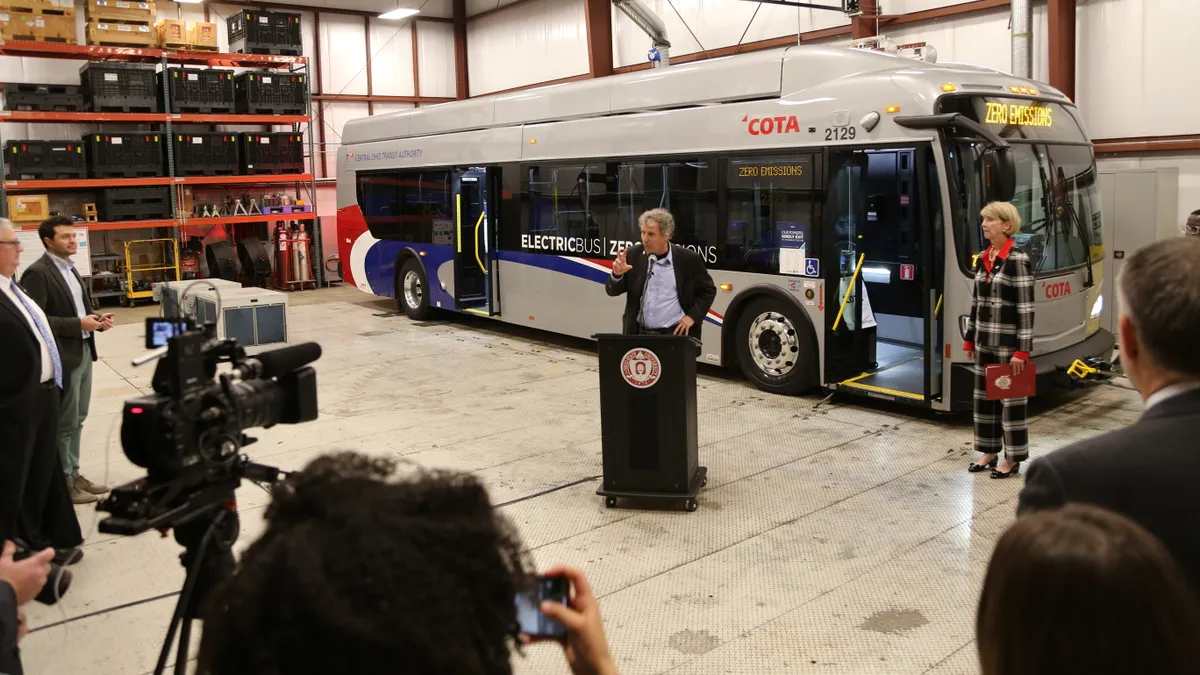As cities and transit agencies transition to electric buses, the Federal Transit Administration is investing $26.5 million in a new testing and research center for transit buses at The Ohio State University’s Center for Automotive Research, or CAR.
“The idea is to assist the industry in advancing the state of technology and facilitating the adoption of zero-emission technologies for transit buses,” said Giorgio Rizzoni, director of Ohio State’s CAR.
The new lab, funded by the bipartisan infrastructure law through fiscal year 2026, will focus its research on batteries, energy storage, hydrogen fuel cells, electric motors and power electronics. It will be able to test components, equipment and complete vehicles.
Sen. Sherrod Brown, D-Ohio, and Ohio State President Kristina Johnson made the announcement at the Center for Automotive Research on Nov. 4.
David Cooke, senior associate director at CAR, explained that they’d look into issues of battery safety, driving range and how range changes over the life of the batteries.
Another key area of research will involve driver behavior. Cooke said the lab would look into how driving techniques affect battery range and how to train drivers to get the best range from their buses, he added.
Established in 1991, CAR has worked with automotive manufacturers, including Ford, Honda and Fiat Chrysler, and includes more than 200 faculty, graduate students, scholars, staff and undergraduate students. Cooke said that CAR regularly meets with transit vehicle makers, transit agencies, charging and fueling companies, and other suppliers. “We have a pretty good understanding of the needs, and now our job is to get to work on the research and to get some things out there that's going to help the industry,” he said.
At the COP27 conference in Egypt this month, the United States signed an international agreement targeting 100% zero-emission medium and heavy-duty vehicle sales — which includes buses — by 2040. But, said Cooke, battery and fuel-cell electric buses “are really fundamentally different technologies.”
He vowed that every research project they pursued under this agreement would result in actionable information. “Anything that we learn will be written in a way that is useful information for transit agencies to make decisions on technology and make decisions on which buses to buy,” Cooke said.















